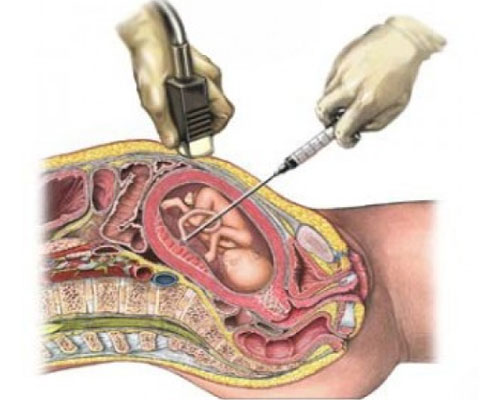Cordocentesis

Prenatal testing can be a scary time for parents. While discovering any birth defects as early as possible allows the best chance for treating them, the prospect of discovering that your developing fetus may have serious health problems is nerve wracking.
Cordocentesis, also known as fetal blood sampling and Percutaneous blood sampling (PUBS), is a method of prenatal testing that's being used to diagnosis in utero complications, including Down syndrome and heart defects. It's also becoming a commonly used method of treating defects while the baby is still in utero.
What is Cordocentesis?
Cordocentesis, (not to be confused with amniocentesis, in which amniotic fluid is removed from the area surrounding the developing fetus), is a process in which an advanced ultrasound is used to guide a thin needle directly into the umbilical cord.
Once the needle is inserted, a small sample of fetal blood is retrieved and sent to the lab, where it is checked for red blood cell count, fetal infections, fetal oxygen levels and other markers that indicate the health of the fetus. Results usually become available within 72 hours.
When and Why is Cordocentesis Performed?
Cordocentesis is performed when amniocentesis, or a CVS, is unsuccessful or inconclusive in tracking fetal abnormalities. It is usually performed later in pregnancy, between 18 and 24 weeks, when the umbilical cord is sufficiently developed.
If it is performed after 26 weeks and the baby is in distress, an emergency C-section will be performed, although this is very rare.
Cordocentesis looks for fetal malformations; chromosomal irregularities, such as: Down's Syndrome; blood disorders; fetal anemia, isoimmunization; and infections, such as toxoplasmosis.
Benefits of Cordocentesis
Cordocentesis testing can help parents in many ways. For example, it can be used in the diagnosis of heart defects in utero. It can help expectant mothers prepare for a special needs child, explore medical interventions that might be needed, and in some cases help parents decide whether to carry the child to term.
